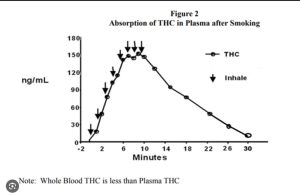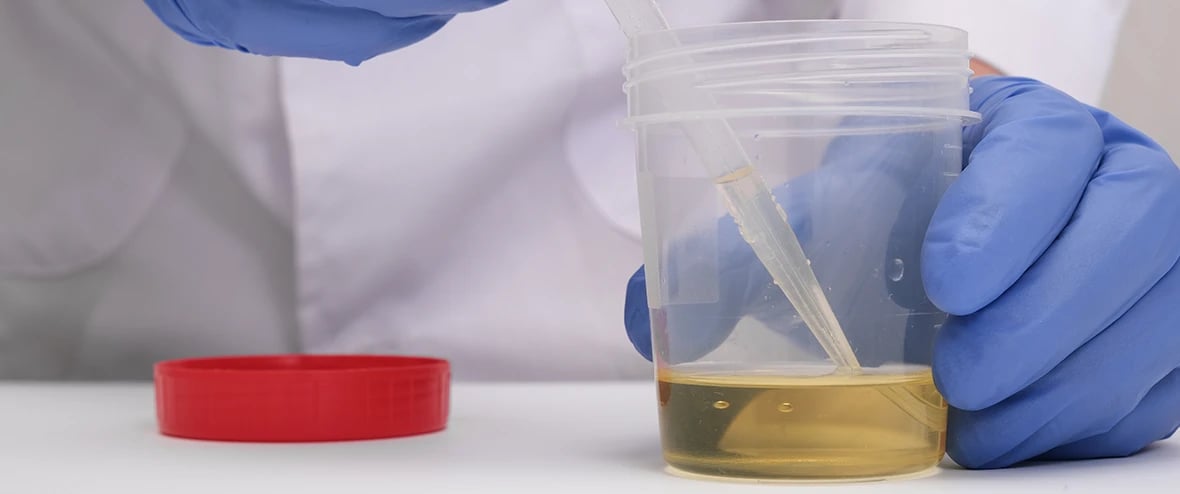How Long Does Weed Stay in Your System? A Driver’s Guide
How long does weed stay in your system is a critical question for any cannabis user who plans to drive. There is no doubt that the psychoactive component of cannabis, THC, can cause impairment of driving ability, and because of its its high fat solubility, trace amounts will remain in your blood for many hours after use. However, the maximum blood THC concentration and maximum impairment of driving ability occur within the first hour after smoking. The blood THC concentration and impairment decreases rapidly over the next several hours and the half life of blood THC increases from about 15-30 minutes to several hours or more. Understanding this timeline is essential for road safety.
Expert Consensus on Driving After Cannabis Use
The following reviews and studies have assessed the number of hours after smoking cannabis one should wait until driving. This research provides a scientific foundation for answering the common query of how long does weed stay in your system in a way that impacts daily activities like driving.

A review was conducted comparing the effects of cannabis and alcohol on driving. It concluded: “In the meantime, patients who smoke marijuana should be counseled to have a designated driver if possible, to wait at least three hours after smoking before driving, if not, that marijuana is particularly likely to impair monotonous or prolonged driving, and that mixing marijuana with alcohol will produce much more impairment that either drug used alone.”
Sewell, R.A., Poling, J., and Sofuoglu, M., 2009 (3 hours)


This research team stated clearly that “current research suggests that acute impairment from cannabis typically clears 3-4 hours after use.”
Fischer, B., et al, 2011, (3-4 hours)


In its preliminary guidance, the College advised that “patients taking dried cannabis should be advised not to drive for at least a) four hours after inhalation, b) six hours after ingestion, and c) eight hours after inhalation or oral ingestion if the patient experiences euphoria.”
The College of Family Physicians of Canada, 2014 (4 hours, 8 hours if feel a high)


This major review of 53 studies on the effect of THC on motor vehicle collisions found that “impairment by THC was greatest at 1 hour after smoking and declined to zero over 3 to 4 hours.”
Ramaekers et al, 2004 (3-4 hours)

Key Factors Influencing How Long THC Stays in Your System

While the question “how long does weed stay in your system?” seems simple, the answer is influenced by several biological factors. The duration of detectable THC and its metabolites extends far beyond the window of acute impairment, which is a crucial distinction for workplace testing or legal contexts.
- Metabolism and Body Fat: THC is lipophilic, meaning it binds to fat cells. Individuals with a higher body fat percentage may store THC for longer periods.
- Frequency of Use: Occasional users will clear THC from their systems much faster than chronic, heavy users. For regular users, THC can accumulate in fatty tissues, leading to a much longer detection window.
- Potency and Dosage: The strength (THC percentage) of the cannabis and the amount consumed directly impact how much THC enters your bloodstream and how long it takes to be metabolized.
- Method of Consumption: Inhaled cannabis typically leads to a faster onset of effects and a shorter duration of impairment compared to ingested cannabis products like edibles, which take longer to metabolize but can have effects that last much longer.
Recent Research on THC Impairment Duration
Modern studies continue to refine our understanding of how long does weed stay in your system in terms of causing measurable cognitive impairment, which is the primary concern for driving.

This scoping review of 234 medical cannabis patients concluded: “In general, cognitive performance declined mostly in a THC dose-dependent manner, with steady resolution of impairment in the hours following THC administration… In all the studies there was no difference between any of the THC groups and placebo on any neurocognitive measure after 4 h of recovery.”
Eadie et al, 2021 (at least 4 hours)


This meta-analytic review, one of the most comprehensive to date, evaluated 481 effect estimates of inhaled cannabis. It provided a conservative guideline, suggesting “individuals should wait at least 5-hrs following inhaled cannabis use before performing safety-sensitive tasks.”
McCartney et al, 2021 (at least 5 hours)

Conclusion and Legal Implications
A clear consensus from the scientific literature is that after smoking cannabis, you should typically wait at least 3 hours and probably 4 to 5 hours before driving. This directly addresses the practical concern of how long does weed stay in your system to a level that compromises driving safety. However, it is vital to understand that while acute impairment subsides within hours, trace amounts of THC can remain detectable in your body for days or even weeks.
This distinction is often at the heart of legal cases involving drug-impaired driving, where the expertise of a forensic toxicologist is required to interpret blood levels and relate them to a specific window of impairment.
For legal professionals dealing with such cases, the expertise of an experienced forensic toxicologist is invaluable. James Wigmore, a recognized forensic scientist with decades of experience, provides expert witness testimony to help clarify the complex relationship between THC levels, impairment, and timing. His analysis can be critical in personal injury and overserving cases where cannabis is a factor.
Act Now: Strengthen Your Defence
Leverage Science to Challenge Prosecution Claims
James’s forensic team continuously reviews and catalogs over 14,000 studies – giving you access to cutting-edge insights that can expose weaknesses in toxicology evidence and testing methods.
Get a Free Forensic Evaluation!Don’t let unreliable evidence shape your future. Contact us today.
References
The College of Family Physicians of Canada, “Authorizing Dried Cannabis for Chronic Pain or Anxiety, Preliminary Guide”, 24 pp, September 2014
Eadie, L., Lo, L.A., Christiansen, A., Brubacher, J.R., Barr, A.M., Panenka, W.J., and MacCallum, C.A., “Duration of Neurocognitive Impairment with Medical Cannabis Use: A Scoping Review”, Frontiers in Psychiatry, 12: 15 pp, 2021
Fischer, B., Jeffries, V., Hall, W., Room, R., Goldner, E., and Rehm, J.,“Lower Risk Cannabis Use Guidelines for Canada (LRCLUS): A Narrative Review of Evidence and Recommendations”, Canadian Public Health Association, 102: 324-327, 2011
McCartney, D., Arkell, T.R., Irwin, C., and McGregor, I.S., “Determining the Magnitude and Duration of Acute Delta 9-Tetrahydrocannabinol (Delta 9- THC) Induced Driving and Cognitive Impairment: A Systematic and Meta-Analytic Review”, 126: 175-193, 2021
Ramaekers, J.G., Berghaus, G., van Laar, M., and Drummer, O.H., “Dose Related Risk of Motor Vehicle Crashes After Cannabis Use”, Drug and Alcohol Dependence, 73: 109-119, 2004
Sewell, R.A., Poling, J., and Sofuoglu, M., “The Effect of Cannabis Compared with Alcohol on Driving”, The American Journal of Addiction, 18: 185-191, 2009
How long does weed stay in your system: FAQs
How long does cannabis impair driving after use?
Studies cited in the article show that impairment is greatest within 1 hour of smoking and generally declines to baseline over 3–5 hours.
What do experts recommend about driving after smoking cannabis?
The College of Family Physicians of Canada recommends:
4 hours after inhalation
6 hours after ingestion
8 hours if the user still feels euphoric
How quickly does blood THC concentration decline?
The blood THC concentration and impairment decrease rapidly over several hours after the peak in the first hour.
Does the method of consumption affect impairment duration?
Yes. Inhaled cannabis leads to faster onset and shorter impairment, while oral ingestion (edibles) takes longer to metabolize and can cause prolonged effects.
What factors influence how long THC stays in your system?
Key factors include: Metabolism and body fat (THC is fat-soluble), Frequency of use (occasional vs. chronic users), Potency and dosage, Method of consumption
How long does cognitive impairment last according to recent research?
Eadie et al., 2021: No measurable cognitive impairment after 4 hours post-THC administration.
McCartney et al., 2021: Suggests waiting at least 5 hours after inhaled cannabis for safety-sensitive tasks.
How do scientists measure the effect of THC on driving?
Studies measure both blood THC concentration and cognitive/motor impairment, showing that maximum impairment occurs within the first hour and declines over several hours.
Why is the distinction between detection and impairment important?
Even after THC is no longer impairing, it may still be detectable in the body for longer. This is crucial for legal and workplace contexts, where blood levels need expert interpretation.
What do major reviews conclude about waiting before driving?
Sewell et al., 2009: At least 3 hours after smoking.
Fischer et al., 2011: Acute impairment clears in 3–4 hours.
Ramaekers et al., 2004: Impairment declines to zero over 3–4 hours.
What is the role of a forensic toxicologist in cannabis-related legal cases?
Experts like James Wigmore analyze THC blood levels and relate them to impairment windows, helping clarify the relationship between use, timing, and legal responsibility.
Recent News

Is Vaping Safe, or is It Just Bait and Switch from...
The pressing health question for our time—is vaping safe?—takes centre stage at the Toronto Public...
Read More
Research Update: The Effects of Alcohol on Postmor...
“And now for something completely different.” Is postmortem bladder urine volume an indication of alcohol/drug...
Read More
How Long Does THC Stay in Your Body and Impact Rea...
How long does THC stay in your body, and more importantly, how long does it...
Read More
The Three-Headed Hydra at Work: Which Drug Poses t...
Workplace injury prevention requires understanding which substances actually increase accident risk. The three most destructive...
Read More